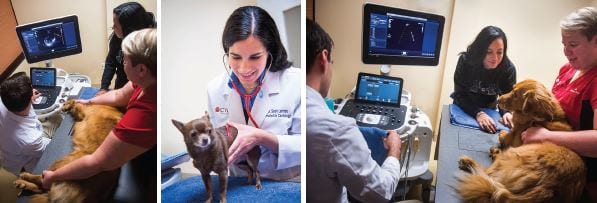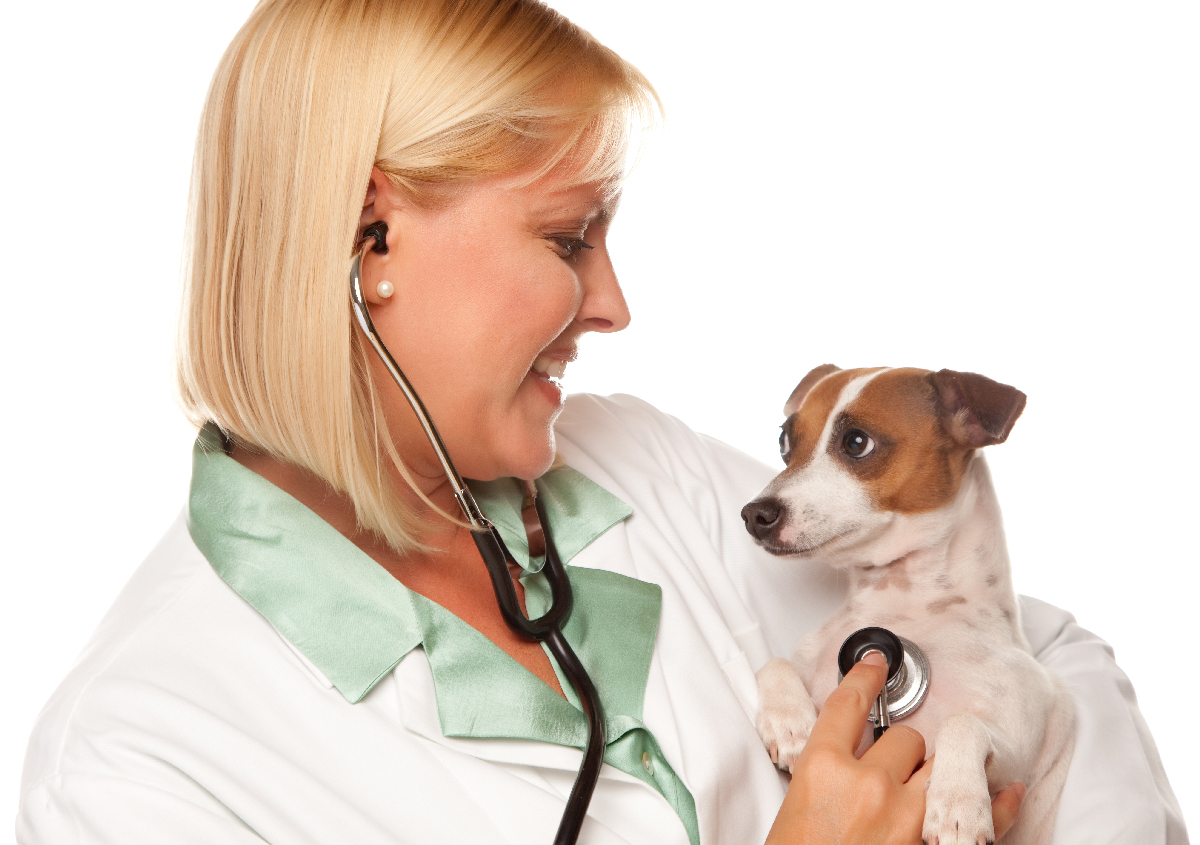Things to Know Before Visiting a Board Certified Veterinary Cardiologist}
Checking Out the Vital Services Supplied by a Veterinary Cardiologist: Comprehending Ultrasound and CT Scan Techniques
Vet cardiologists play an essential function in the health and wellness of pets by detecting and dealing with different heart disease. They make use of sophisticated imaging methods, such as cardiac ultrasound and CT scans, to give accurate evaluations. Each approach has its unique advantages and applications. Recognizing these methods is important for pet proprietors looking for the very best look after their friends. What elements should pet proprietors consider when picking in between these diagnostic tools?

The Function of Veterinary Cardiologists in Pet Dog Health Care
Veterinary cardiologists play an important role in the health care of pets, focusing specifically on diagnosing and treating heart-related conditions. They possess specialized training that allows them to analyze complex analysis examinations and recognize numerous cardio concerns. These specialists utilize innovative strategies, such as echocardiography and electrocardiography, to examine heart feature and framework accurately.Veterinary cardiologists likewise establish tailored treatment strategies that might consist of medicines, way of life adjustments, and, sometimes, surgical interventions. Their know-how includes informing family pet owners about heart wellness, stressing the value of routine check-ups and early detection of possible issues. Partnership with general vets is crucial, as it guarantees comprehensive look after animals with suspected heart problems. By providing specialized solutions, vet cardiologists significantly improve the lifestyle for animals and supply assurance for their owners, enhancing the value of heart health in total family pet wellness.
Usual Cardiac Concerns in Animals
Usual cardiac problems in pets can significantly affect their health and top quality of life. Heart murmurs, numerous types of cardiomyopathy, and hereditary heart problems are amongst the most common problems that veterinarians encounter. CT Scans For Dogs. Understanding these concerns is crucial for animal proprietors to guarantee timely medical diagnosis and appropriate treatment
Heart Murmurs in Pets
Heart murmurs can be a resource of concern for animal proprietors, they are not constantly indicative of major health and wellness concerns. A heart murmur is an irregular audio produced by rough blood circulation within the heart. In pet dogs, these whisperings can be triggered by different aspects, consisting of congenital heart flaws, shutoff concerns, or also stress during evaluations. Lots of pet dogs with heart murmurs lead typical lives without considerable health and wellness effects. To establish the underlying reason, vet cardiologists frequently use analysis strategies such as echocardiograms and Doppler ultrasounds. Early discovery and analysis are essential, as they might aid take care of any kind of potential cardiac problems efficiently. Animal owners are encouraged to consult their veterinarian for an extensive assessment if a heart murmur is found.
Cardiomyopathy Kind Explained
Cardiomyopathy includes a group of diseases affecting the heart muscular tissue, bring about endangered heart feature in family pets. The most common types consist of expanded cardiomyopathy (DCM), hypertrophic cardiomyopathy (HCM), and restrictive cardiomyopathy (RCM) DCM primarily affects dogs, creating the heart to increase the size of and deteriorate, which diminishes its capacity to pump blood effectively. On the other hand, HCM is more widespread in felines, characterized by the enlarging of the heart wall surfaces, frequently resulting in blocked blood flow. RCM, though less usual, happens when the heart muscle comes to be rigid, restricting its capability to full of blood. Each kind offers special challenges in medical diagnosis and treatment, demanding specialized veterinary cardiological analysis to assure peak administration and take care of affected animals.
Hereditary Heart Defects
Genetic heart defects stand for a considerable group of cardiac concerns in animals, distinctive from acquired problems such as cardiomyopathy - Board Certified Veterinary Cardiologist. These issues are structural irregularities existing at birth, impacting the heart's regular function. Usual types consist of license ductus arteriosus, ventricular septal defects, and pulmonic constriction. Signs and symptoms may vary widely, ranging from light to severe, and can include workout intolerance, coughing, and trouble breathing. Early diagnosis with innovative imaging strategies like ultrasound is important for efficient monitoring. Veterinary cardiologists play an essential duty in recognizing these conditions and recommending proper treatment choices, which might consist of clinical management or surgical intervention. Acknowledging hereditary heart problems enables far better end results and enhanced quality of life for impacted family pets
Comprehending Heart Ultrasound: Just How It Functions
A substantial variety of vet techniques currently make use of heart ultrasound as an essential diagnostic device for assessing heart health and wellness in animals. This non-invasive method uses high-frequency acoustic waves to create photos of the heart's structure and function. During the treatment, a vet professional uses a gel to the pet's breast and utilizes a transducer to send out ultrasound waves. These waves jump off the heart and surrounding frameworks, creating real-time photos on a monitor.Veterinarians can examine different elements of cardiac health, consisting of chamber size, wall surface activity, and valve function. Additionally, heart ultrasound permits the detection of abnormalities such as fluid accumulation and genetic heart flaws. This method is important for diagnosing problems that may not be visible via basic radiographs. By offering detailed details regarding the heart's anatomy and efficiency, cardiac ultrasound help in developing reliable therapy prepare for animals suffering from heart disease.
The Relevance of CT Scans in Diagnosing Heart Issues
Exactly how do CT scans enhance the diagnosis of heart disease in veterinary medication? CT scans supply comprehensive cross-sectional pictures of the heart and surrounding frameworks, enabling vets to imagine intricate anatomical partnerships. This imaging technique is specifically helpful in identifying i loved this genetic heart problems, cardiac lumps, and irregularities in capillary. By utilizing innovative imaging algorithms, CT scans can examine heart chamber dimensions and function, providing a comprehensive sight that may be challenging to attain with traditional methods.Additionally, CT angiography can picture blood circulation and identify locations of stenosis or blockage, which is vital for intending potential interventions. The rate and accuracy of CT scans also help with quick medical diagnoses, essential in emergency circumstances. Eventually, the unification of CT scans into vet cardiology substantially improves the precision of diagnoses, enabling targeted treatment plans and enhancing person outcomes for animals struggling with heart disease.
Comparing Ultrasound and CT Scan Techniques
While both ultrasound and CT scans are very useful tools in veterinary cardiology, they provide unique advantages and constraints that affect their usage in diagnosing heart problems. Ultrasound, or echocardiography, supplies real-time imaging of the heart's framework and feature, allowing veterinarians to examine heart chambers, shutoffs, and blood circulation. It is especially efficient for reviewing problems like congestive heart failing and cardiomyopathy. Nonetheless, ultrasound might be restricted in visualizing certain anatomical frameworks as a result of person dimension or obesity.In comparison, CT checks deal in-depth cross-sectional photos of the heart and bordering tissues, making them optimal for determining structural abnormalities, lumps, or vascular concerns. Although CT scans give complete insights, they require sedation and might involve radiation direct exposure. Eventually, the choice in between ultrasound and CT checks depends on the details scientific scenario, the person's condition, and the information required for an accurate medical diagnosis.
Therapy Options Readily Available Through Vet Cardiology
Veterinary cardiology supplies visite site a variety of therapy options customized to deal with numerous heart conditions in pets. Treatment strategies typically start with way of life alterations, including diet modifications and workout adjustments, intended at improving general heart wellness. Medications play a crucial function, with cardiologists prescribing medications such as diuretics, beta-blockers, and ACE preventions to enhance and handle signs and symptoms heart function.In a lot more severe instances, interventional treatments, such as balloon valvuloplasty or stent placement, might be needed to alleviate obstructions or boost blood circulation. For certain hereditary heart issues, surgical options might be explored to fix structural concerns. In addition, ongoing monitoring and follow-up care are crucial components of a detailed treatment plan, enabling for timely modifications based upon the pet dog's feedback to treatment. Overall, veterinary cardiology focuses on supplying reliable, customized like maximize the wellness and health of pet people with heart conditions.
Just how to Prepare Your Pet Dog for a Heart Analysis
Preparing a pet for a heart evaluation is essential to guarantee accurate outcomes and a smooth process. Owners should initially set up the consultation with the vet cardiologist and go over any type of particular requirements or problems. It is suggested to hold back food for at the very least 12 hours before the assessment, as this helps enhance imaging top quality throughout procedures like ultrasound or CT scans.Additionally, keeping a tranquil atmosphere on the day of the appointment can help in reducing the pet dog's anxiety. It is advantageous to bring along any pertinent clinical records, consisting of previous examinations and medications (Ultrasound For Dogs). Proprietors ought to additionally ensure that their family pet is comfortable and leashed throughout transport to the facility. Ultimately, familiarizing themselves with the analysis procedure can assist and alleviate worries in asking educated inquiries throughout the assessment. By complying with these actions, owners can add greatly to the performance of the cardiac examination
Frequently Asked Concerns
For how long Does a Heart Ultrasound or CT Check Take?
The duration of a heart ultrasound usually varies from 30 to 60 minutes, while a CT check might take approximately 15 to 30 mins. Variables such as the client's problem can affect these time price quotes.

Exist Any Type Of Risks Related To These Diagnostic Procedures?

Can I Keep With My Pet Dog Throughout the Procedure?
The veterinary center's plan usually dictates whether family pet owners can remain throughout treatments. While some clinics encourage owner presence for comfort, others might need separation to assure safety and suitable conditions for diagnostic imaging.
Just how much Do These Diagnostic Examinations Normally Cost?
The expenses of diagnostic tests, such as ultrasound and CT scans, normally differ based on place and facility. Usually, rates vary from a few hundred to over a thousand bucks, showing the complexity and technology included.
What Is the Healing Process After a Cardiac Assessment?
The recovery process after a cardiac analysis involves checking the pet dog for any type of instant responses, making certain comfort, and limiting why not look here exercise. Vets usually supply post-evaluation guidelines to lead family pet owners during this necessary healing duration. Heart whisperings, various types of cardiomyopathy, and congenital heart problems are among the most prevalent conditions that vets encounter. A heart whispering is an abnormal noise created by turbulent blood circulation within the heart. Cardiomyopathy includes a group of diseases impacting the heart muscular tissue, leading to compromised cardiac function in pets. Hereditary heart issues stand for a considerable category of cardiac issues in animals, unique from gotten conditions such as cardiomyopathy. Ultrasound, or echocardiography, provides real-time imaging of the heart's structure and feature, permitting vets to analyze heart chambers, valves, and blood circulation.